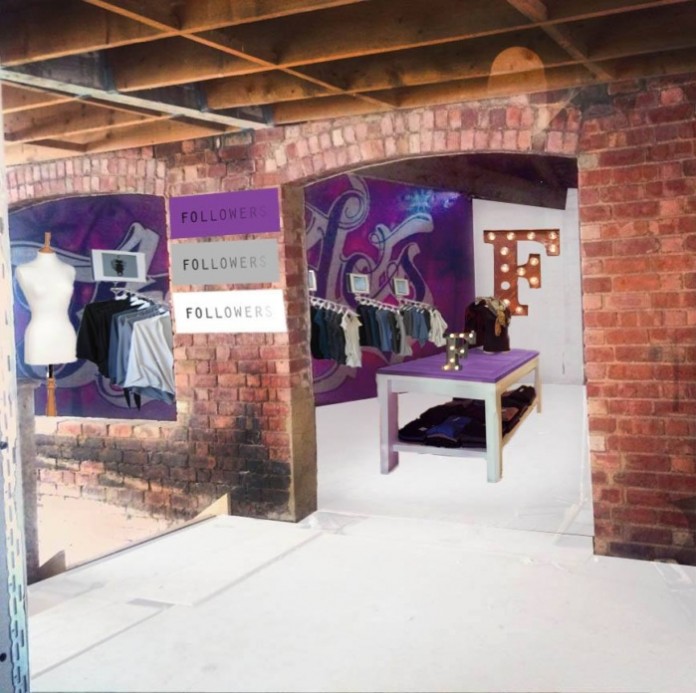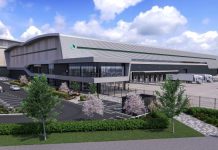The UK’s town centres are changing; they are places of great complexity and variety in terms of scale, geography and catchment, function and form. And like a lot of town centres across the country, Kettering has suffered a rise of empty shops due to a change in our retail habits as well as the recent economic situation – but this is changing says commercial property agent Prop-Search.
Many town centres now operate for 18 hours, if not a full 24 hours as a result of huge change in lifestyles since the days when town centres were dedicated mainly to shopping 9am to 5pm. “The last wave of new development in the town centre has ushered in a new mix of leisure, entertainment and shopping”; says Samantha Jones, an Associate Director at Prop-Search. “This shows just how vital the leisure economy and more flexible hours are to the future survival and vitality of Kettering.”
The challenges of managing and controlling town centres after-hours are well documented and the negative impacts are well publicised. However, Kettering town centre has recently been awarded the prestigious Purple Flag in recognition of its exemplary evening and night-time economy. The award, similar to the Blue Flag for beaches, recognises excellence in managing a thriving, safe and vibrant evening economy in the town centre; assessing a wide range of factors including visitor attractions, things to do, levels of lighting, clarity of signage, crime levels and cleanliness standards. Kettering was awarded the Purple Flag after assessors from Association of Town Centre Management (ATCM) came to visit the town centre and experienced first-hand the night-time offering.
The former derelict fire station and connecting out-buildings off Market Street are in the process of being converted to attract more independent retailers into the town, as well as taking advantage of the town’s night-time economy. Local developer Kevin Jones – who has already had success with similar developments in Rothwell – is undertaking a sympathetic restoration of the scheme, which has this month opened. Known as The Yards, the area comprises a large retail and restaurant space, which can accommodate up to 50 retailers, and offer a niche venue for music and artistic events. Inspired by similar places in Camden, a section of the scheme – The Exchange – will act as a base for new start-up or fledgling businesses. It will operate a bit like a department store in that there will be multiple traders with one central pay point. The vision behind this concept is that it will enable people to hire space on a casual basis, perhaps around an existing job or even a fashion or art student wanting to sell things they have made.
A new hotel could be one step closer to being built in the town centre. Kettering Borough Council had previously approved a planning application for a 45 bedroom hotel Queen Street, off Horsemarket, however a new application was made earlier this year to extend that permission to add a further 21 bedrooms. The planning documents said the extension was needed to create ‘a more economically sustainable development’.
A new clothing retailer – funded by the South African retail tycoon who recently bought New Look – has chosen to open its first store in Kettering aiming to compete with Peacocks and Primark. The nascent chain, Pep & Co, has taken over the former Dreams bed shop within the Newlands Shopping Centre. It sells a range of menswear, womenswear and children’s clothes to rival other value fashion brands.
July also saw the opening of a new store, again within the Newlands Shopping Centre, by the Danish jewellery company Pandora. The company established in 1982 has, particularly in recent years, become a household name – designing, manufacturing and marketing hand-finished modern jewellery made from genuine metals at affordable prices. Today its jewellery is sold in more than 90 countries on six continents.
So what’s does the future hold for Kettering town centre and what does it need to do to sustain its vitality?
Samantha Jones concludes: “Town centres have generally always been dynamic and adaptive, and have constantly been reshaped by periodic and competitive shocks. Kettering is no different and is already successful in offering a kaleidoscope of experiences – from daytime shopping to early evening leisure; to eating, drinking and culture later at night and finally to drinking and dancing into the early morning. However, for a sustained future it needs to continue to exploit an understanding that successful high streets are those which promote new forms of complementary relationships – in particular those between on-line retail and the traditional store; corporate retailers and small and specialist independent stores; and between high streets as retail spaces and high streets as spaces for leisure and social interaction – as well as good management.”



















